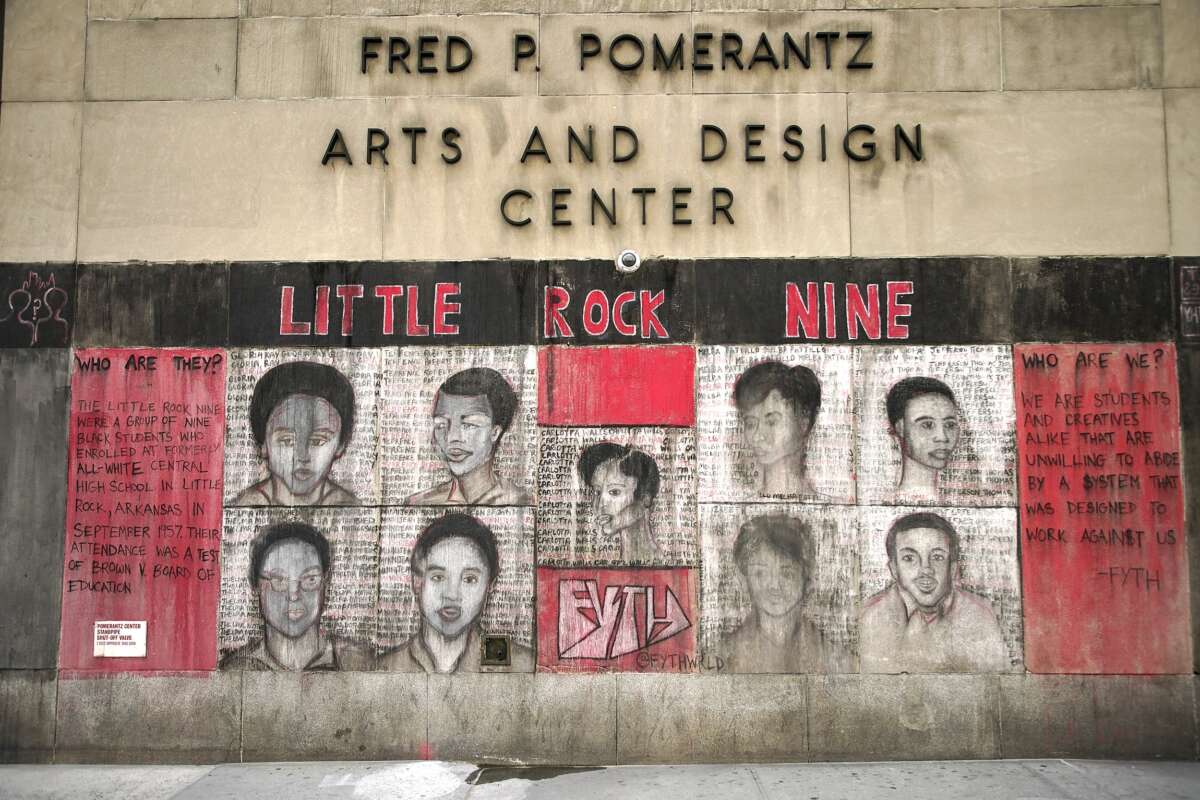Surviving members of the Little Rock Nine, a group of students who faced extreme harassment and threats of violence for integrating Little Rock Central High School in 1957, have spoken out against Arkansas education officials who decided last week not to recognize an Advanced Placement (AP) course on Black history.
Earlier this month, Arkansas Department of Education officials informed school districts in the state that offered the course — including in Little Rock — that students may not be permitted to use the college-level course in their counting of credits that are necessary to graduate from high school. Officials claimed their decision was based on the fact that the course, which is produced by the company the College Board, has a “pilot” status, and said that the course could violate both state law and an executive order from Gov. Sarah Huckabee Sanders (R) that forbids the teaching of subjects that supposedly push implicit bias.
It’s unclear how the state came to the conclusion that the course may teach implicit bias. Officials have cited similar unfounded claims to block the teaching of Black history elsewhere in the U.S., largely to appease right-wing lawmakers and white conservatives who are opposed to lessons about racism in U.S. history.
AP African American Studies, the course in question, has been in development for over a decade, the College Board says on its website. The curriculum “[draws] from the expertise and experience of college faculty and teachers across the country…to offer high school students an evidence-based introduction to African American studies,” through the fields of “literature, the arts and humanities, political science, geography, and science.”
In the fall of 1957, three years after the Supreme Court ruled that “separate but equal” in education was unconstitutional, nine Black students sought to integrate Little Rock High School. For weeks, the students were blocked from doing so by an angry white mob and the National Guard, which had been called by then-Gov. Orval Faubus to prevent the students from entering the school. In late September of that year, President Dwight Eisenhower finally federalized the National Guard and sent the U.S. Army to escort the students to the school. White residents continued to harass members of the Little Rock Nine, as they came to be known, for weeks after.
Some surviving members of the Little Rock Nine criticized the decision by the Arkansas Department of Education on NBC News, calling it a deliberate, far right attempt to limit the teaching of factual events.
“I think the attempts to erase history is working for the Republican Party. They have some boogeymen that are really popular with their supporters,” said Elizabeth Eckford, a member of the Little Rock Nine.
Terrence Roberts, another member of the Little Rock Nine, also denounced the decision, saying that at a “bare minimum” there shouldn’t be “laws restricting [students’] ability to learn” what happened in the U.S. during the Civil Rights era.
Roberts added that attempts to ban lessons on Black history are “ridiculous.”
“I know there are voices pushing back. The question is, will they be successful?” Roberts said.
Media that fights fascism
Truthout is funded almost entirely by readers — that’s why we can speak truth to power and cut against the mainstream narrative. But independent journalists at Truthout face mounting political repression under Trump.
We rely on your support to survive McCarthyist censorship. Please make a tax-deductible one-time or monthly donation.
